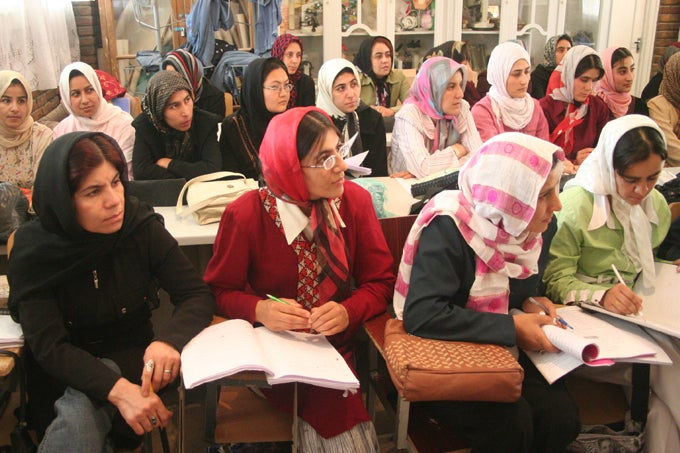Click to Enlarge
That’s no surprise. I imagine many of the voices who joined me in the chat were young and among young people education and jobs loom as especially significant. But for a number of years now my colleagues at the Bank have been working on education in the Middle East and North Africa (MENA) with a sharp focus on quality. They’ve been making the case (and I think many in our chat would agree) that the quality of education in MENA is the major challenge and with it the kind of marketable skills that better quality can produce.
The prominence of education in our word cloud prompted me to gather my education experts and think through how best we can help right now. Interestingly, they said they were hesitant to push education to the front of the agenda following the revolutions because they saw the education fix as long term and the revolutions had thrown up such immediate challenges.
 But we can’t put education on hold, so what now? Mourad Ezzine, my superbly skilled colleague who, with his team, manages the education work in MENA has been thinking deeply about this and he sees us proceeding in three phases: the NOW, the Short to Medium Term and the Medium to Long Term.
But we can’t put education on hold, so what now? Mourad Ezzine, my superbly skilled colleague who, with his team, manages the education work in MENA has been thinking deeply about this and he sees us proceeding in three phases: the NOW, the Short to Medium Term and the Medium to Long Term.
What needs to be done NOW:
> Make space for participation in education. Open up school councils to real and transparent debate, let the voices of parents and education employees be heard;
> Measure what students are learning, collect data on which policy decisions can be made. And feed the data back to the schools and the parents openly; and
> Let the private sector invest and innovate at all levels of education (Did you know that in Tunisia for example, the private sector can deliver education but the schooling offered has to be a perfect mirror of that offered by the state?)
Mourad makes a compelling case that if the impetus of the revolution is used to makes these new spaces, this will trigger change and pave the way for short to medium term reforms such as:
> Curriculum reform, teacher professionalization, early childhood development programs etc.
This is the piece of reform that requires lots of discussion and open consultation and where real results don’t emerge for a minimum of five years.
The third big piece of the education reform agenda is accountability and that’s medium to long term:
> How to hold educators accountable for teaching and real outcomes? In other words are teachers helping students shape the skills and knowledge needed for a real chance to make it in the world?
Here I think Mourad is especially wise, arguing that the system in MENA is not ready for this accountability yet, that teachers need a chance to professionalize, that curricula need to be developed first, that no one knows who’s good and who’s not because the system has not been set up that way.
This three-part framework helped me think through the education challenge and what’s very clear is that politicians in countries where there have been big changes and even in those where the changes are more gradual, have a real opportunity now to push reforms ahead. People are waiting. And reforms in education reach right into the heart of every family, to the children who are MENA’s future.



Join the Conversation